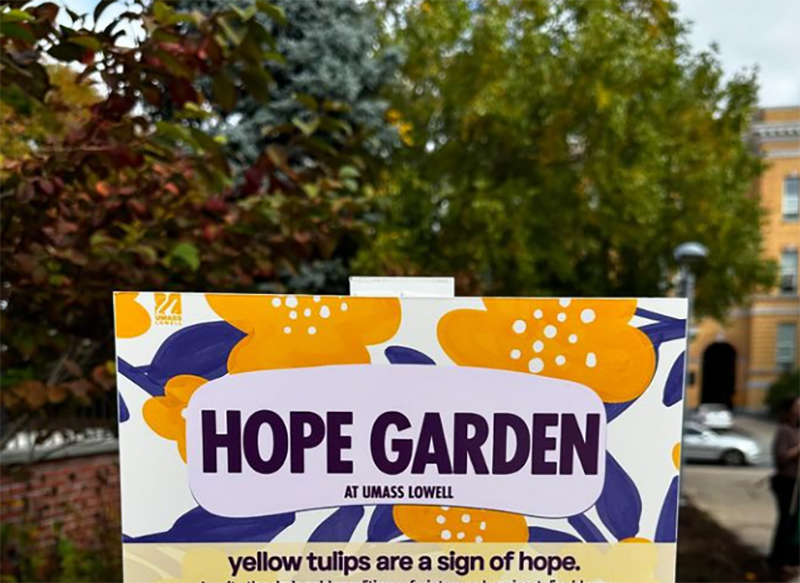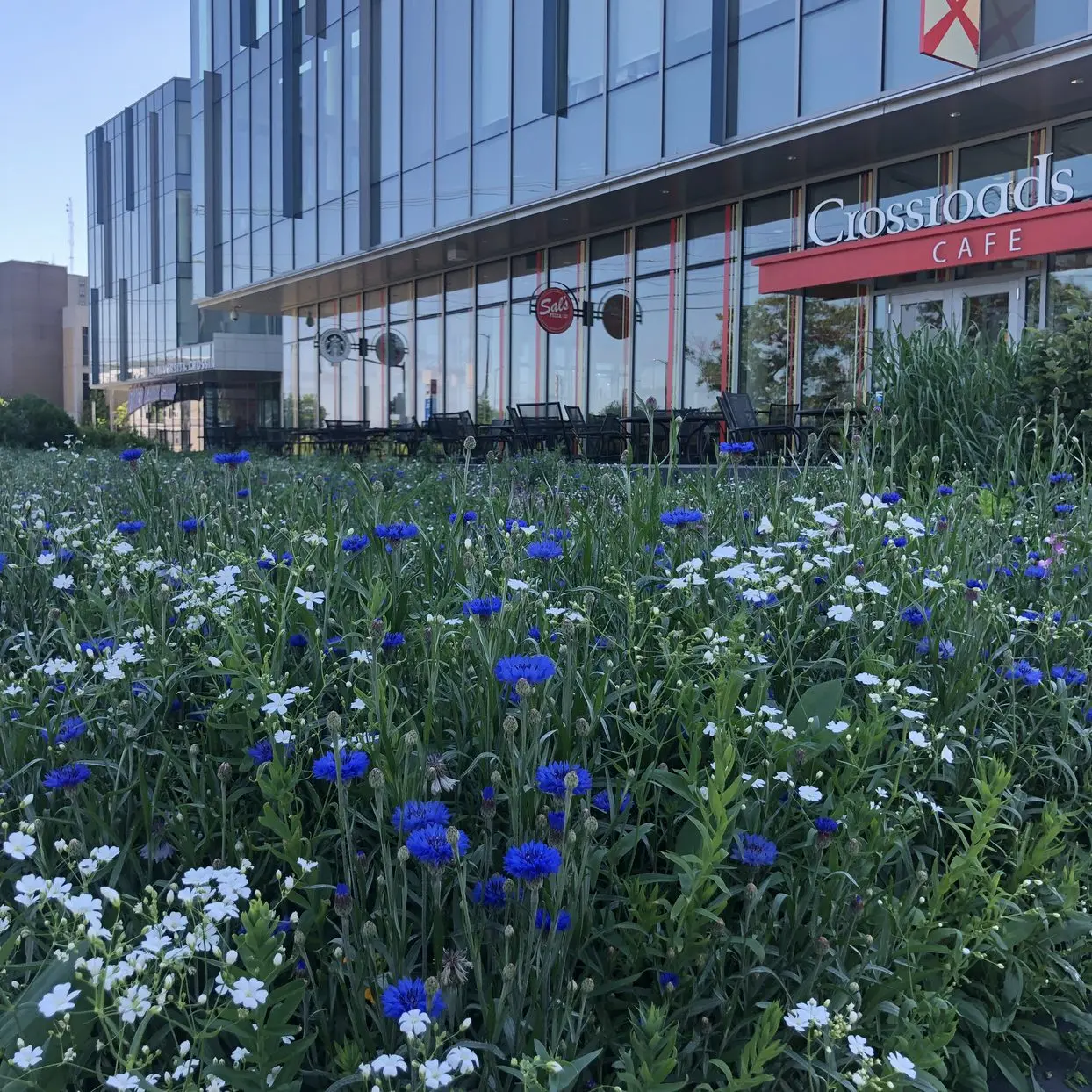
Pollinator Gardens
Located throughout the UMass Lowell campus are several 'pollinator gardens' that provide a consistent source of food and refuge for pollinators, as well as a beautiful mosaic for people to admire. The pollinator gardens include a variety of wildflower species that are native to the area like Chicory, Perennial Lupine, Annual Baby's Breath, and Spurred Snapdragon, to name a few. These native wildflowers provide food and refuge to several species of animals like hummingbirds, bees and wasps, butterflies and moths, beetles, and flies. By helping pollinators, not only can we appreciate their beauty, but also the immense help that they give to the local ecosystems that provide us with food, clean air, and water. Feel free to explore the pollinator gardens more, in-person! See the locations of these pollinator gardens below:
- Hillside behind the Allen House on South Campus
- Along the walkway behind Coburn Hall on South Campus
- Hillside at the Northern Canal Overlook at the corner of Pawtucket Street and University Avenue.
- Flowerbeds in front of University Crossing

The Hope Garden at UMass Lowell. Yellow Tulips are a sign of hope. Despite the dark, cold conditions of winter, each spring tulips bloom and so can you.
Hope Garden
World Mental Health Day, observed on October 10, marks a significant initiative at UMass Lowell to combat stigma surrounding mental health. The university brought The Yellow Tulip Project to campus, creating a Hope Garden on North Campus near Starbucks. This project highlights the symbolism of yellow tulips as the flower of hope, emphasizing community by planting the tulips closely together. Each year, the bulbs will endure the cold winter underground, only to bloom beautifully in the light of spring, representing the enduring presence of hope. This collaborative effort, involving the Office of Student Life and Well-being, UMatter2, Facilities, and the Rist Institute for Sustainability and Energy, aims to foster community, dismantle stigma, and sow seeds of hope for the future.

UMass Lowell Arboretum
The UMass Lowell (UML) Arboretum is a campus-wide project that is meant to develop and maintain a diverse plant collection, that will provide a safe, scenic, sustainable, and educational environment for faculty, staff, students, and visitors, to teach, learn, and enjoy. The UML Arboretum is essential to our sustainability goals, as it removes hundreds of pounds of air pollutants, sequesters tons of carbon, and diverts over 100,000 gallons of stormwater runoff, annually. You can see more of how the Arboretum has helped the university achieve its sustainability goals, has been used for research, and where you can view certain plant species, on the UMass Lowell Arboretum webpage.

Peregrine Falcon Habitat
If you have walked around East Campus, you may have noticed a small box and a protruding wood stick on the top of Fox Hall. This is the habitat and nesting place of UMass Lowell's resident peregrine falcons, also known as, 'our honorary River Hawks.' As peregrine falcons are on the Massachusetts' Endangered Species List, numerous procedures have been implemented to ensure the health and survival of the two mature peregrine falcons and their offspring. One of the procedures that has been implemented is the continuous live-streaming channels of the peregrine falcon habitat, which can be viewed on UMass Lowell's peregrine falcons website.
Grounds Team
UMass Lowell's dedicated grounds team is responsible for maintaining the University's 150 acres of grounds, fields, parking lots, and driveways. The hard work and dedication of our grounds team provides for a safe, functional, pleasant, and sustainable outdoor environment for the university community.
The University's landscape management efforts and our commitment to biodiversity in our campus ecosystems contributes to our Sustainability Tracking, Assessment and Rating System (STARS) Rating.

